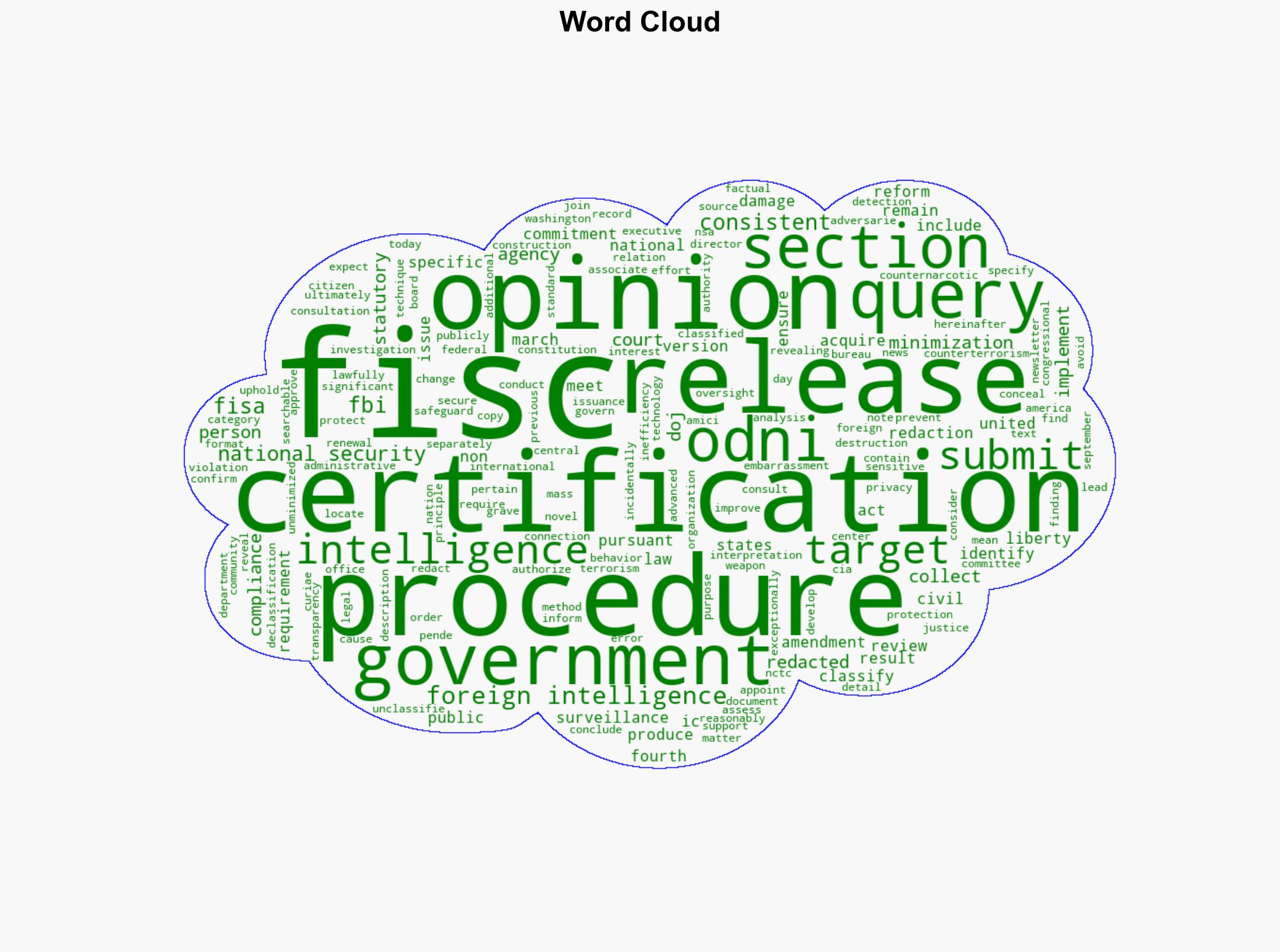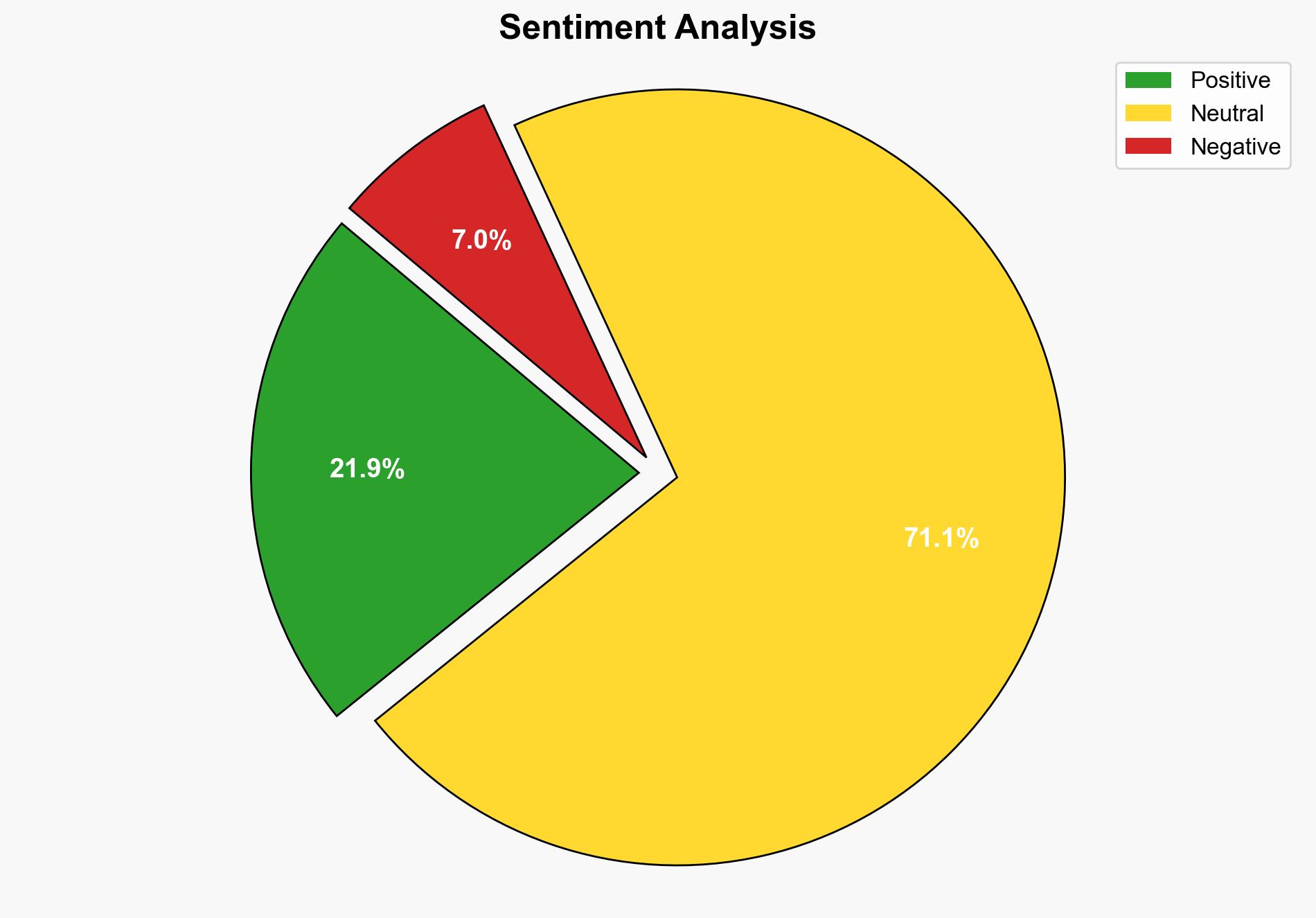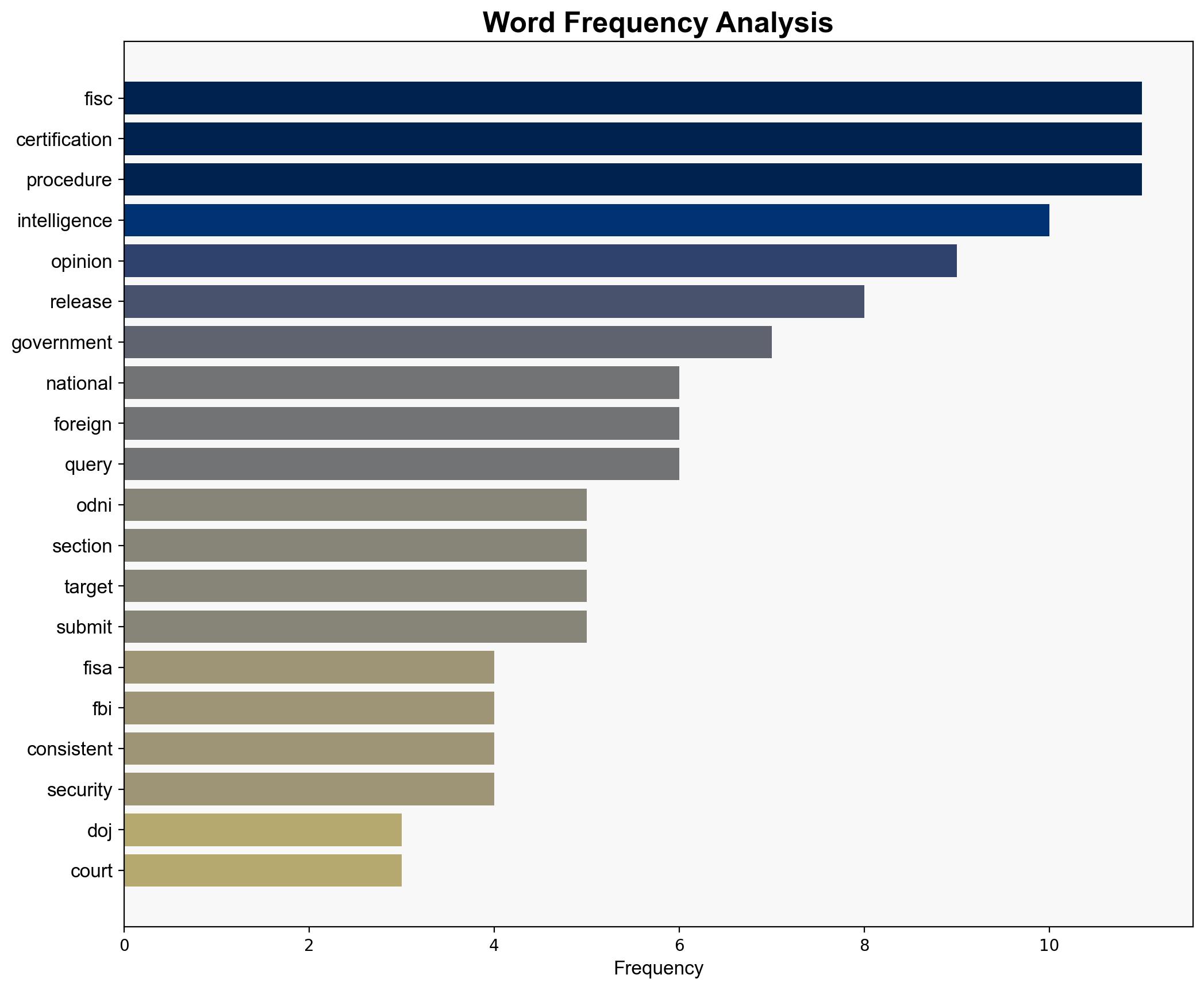ODNI Releases March 2025 FISC Section 702 Certification Opinion and Related Procedures – Globalsecurity.org
Published on: 2025-09-15
Intelligence Report: ODNI Releases March 2025 FISC Section 702 Certification Opinion and Related Procedures – Globalsecurity.org
1. BLUF (Bottom Line Up Front)
The most supported hypothesis is that the release of the FISC Section 702 certification opinion is primarily a strategic move to demonstrate transparency and compliance with legal standards, thereby reinforcing public trust and international credibility. Confidence level: Moderate. Recommended action: Monitor subsequent legal and public reactions to assess shifts in domestic and international perceptions of U.S. intelligence practices.
2. Competing Hypotheses
1. **Transparency and Compliance Hypothesis**: The release is intended to showcase the government’s commitment to transparency and adherence to legal standards, thus bolstering public trust and international credibility.
2. **Strategic Obfuscation Hypothesis**: The release, while appearing transparent, is strategically redacted to obscure significant non-compliance issues or controversial practices, thereby minimizing potential backlash while maintaining operational capabilities.
Using the Analysis of Competing Hypotheses (ACH) 2.0, the first hypothesis is better supported due to the structured release process, involvement of multiple oversight entities, and the emphasis on compliance with the Fourth Amendment.
3. Key Assumptions and Red Flags
– **Assumptions**: The government is acting in good faith to enhance transparency. The redactions are solely for national security, not to conceal wrongdoing.
– **Red Flags**: Extensive redactions could indicate significant issues being concealed. The timing of the release could be politically motivated.
– **Blind Spots**: Lack of independent verification of the redacted content. Potential over-reliance on government-provided narratives.
4. Implications and Strategic Risks
– **Transparency**: Enhances U.S. credibility, potentially improving international cooperation.
– **Non-Compliance Risks**: If redactions conceal significant issues, it could lead to domestic and international backlash, undermining trust.
– **Geopolitical Impact**: Other nations might scrutinize their intelligence-sharing agreements with the U.S., affecting global intelligence operations.
– **Cybersecurity**: Potential adversaries might exploit perceived weaknesses in U.S. intelligence practices.
5. Recommendations and Outlook
- **Mitigation**: Increase engagement with oversight bodies and civil liberties organizations to ensure transparency and address concerns.
- **Exploitation**: Use the release to reinforce alliances by demonstrating commitment to legal standards.
- **Projections**:
– **Best Case**: Strengthened public trust and international partnerships.
– **Worst Case**: Revelations of non-compliance lead to domestic and international fallout.
– **Most Likely**: Moderate improvement in transparency perception with ongoing scrutiny of intelligence practices.
6. Key Individuals and Entities
– Office of the Director of National Intelligence (ODNI)
– Department of Justice (DOJ)
– Federal Bureau of Investigation (FBI)
– National Security Agency (NSA)
– Central Intelligence Agency (CIA)
– National Counterterrorism Center (NCTC)
7. Thematic Tags
national security threats, cybersecurity, counter-terrorism, regional focus





